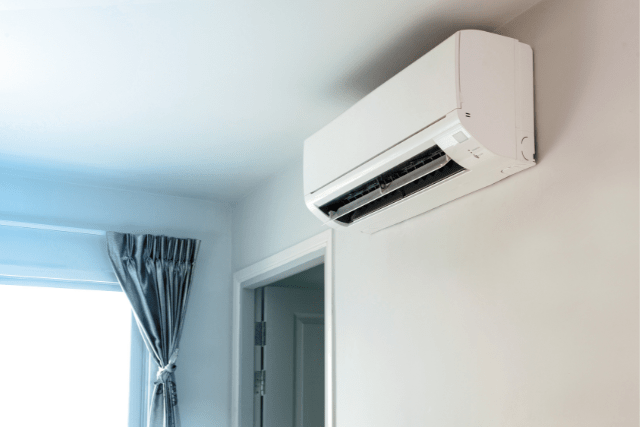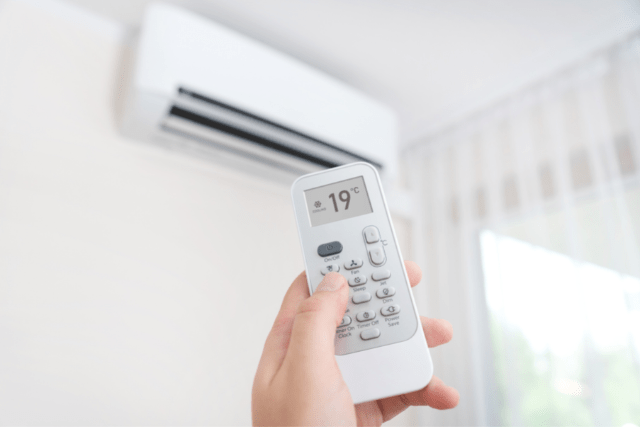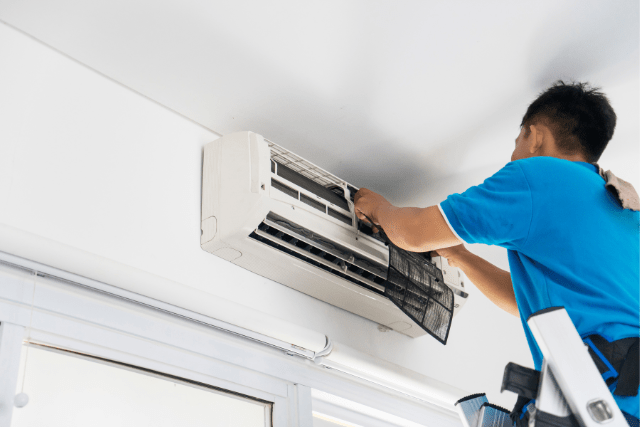Air conditioners have become essential to modern homes and buildings, providing a comfortable living or working environment during hot weather. They remove heat from the air and transfer it to the outside, leaving the inside air cool and dry. This blog post will discuss everything you need about air conditioners, including how they work, the different types available, and tips for maintaining and selecting a suitable unit for your home or office.
Find Air Conditioning brands like Voltas, Samsung, LG, Godrej and many more at the best deals!
What is an Air Conditioner?
An air conditioner is a device that removes heat and humidity from the air. It is typically used to cool a room or a building but can also dehumidify the air. Air conditioners use refrigeration technology based on the principle of heat transfer. They use a refrigerant that changes from a liquid to a gas and back again to absorb and remove heat from the air.
How Does an Air Conditioner Work?
Air conditioners work by using a process called the refrigeration cycle. This cycle involves four main components: the compressor, the condenser, the evaporator, and the expansion valve.
The refrigerant, usually a type of gas, enters the compressor as a low-pressure gas. The compressor then compresses the refrigerant, raising its temperature and pressure. The hot, high-pressure gas then moves to the condenser, giving heat to the outside air and condensing into a high-pressure liquid.
The high-pressure liquid then moves through the expansion valve, rapidly expanding and cooling, becoming a low-pressure liquid. The low-pressure liquid then enters the evaporator, which absorbs heat from the inside air and evaporates into a low-pressure gas.
The refrigerant then returns to the compressor to start the cycle again. This process continues until the thermostat is satisfied and turns off the unit.

Types of Air Conditioners
Air conditioners come in various shapes and sizes, each with its benefits and limitations. Here are the most common types of air conditioners and how they differ from each other:
Window Air Conditioners
A window air conditioner is a unit that sits in a window or a hole in a wall. They are relatively inexpensive and easy to install, making them popular for single cooling rooms or small apartments. They typically include a thermostat, a compressor, and a fan. One downside is that they can be noisy and may take up valuable window space.
Split-System Air Conditioners
A split-system air conditioner, or a ductless mini-split, consists of two parts: an indoor and an outdoor unit. The indoor unit is installed inside the room or building to be cooled, while the outdoor unit is installed outside. This type of air conditioner is more expensive than window units, but they are more energy efficient and less noisy since the noise-producing components are outside. These also can provide zoned cooling, which means different parts of the building or home can be cooled with different temperature levels.



Central Air Conditioners
A central air conditioner is a system that cools the entire home or building. It consists of an outdoor unit, which houses the compressor and condenser, and an indoor unit, which includes the evaporator and the air handler. This type of air conditioner is the most expensive and complex option, but it can provide the most efficient cooling and can be controlled by a thermostat. They also can be connected to ductwork, making it possible to cool multiple rooms or floors in a building.
Portable Air Conditioners
A portable air conditioner is a self-contained unit that can be moved from room to room. They are inexpensive and easy to install but can be noisy and may not be as energy efficient as other options. They are usually less potent than the other types; they can be a solution for smaller spaces or a temporary cooling solution.
Hybrid Air Conditioners
Hybrid air conditioners combine a traditional central air conditioner and an air-source heat pump. They use heat pump technology to cool the air during the summer and heat it during the winter, making them a more efficient solution, especially in milder climates. They also use a backup heating source for frigid temperatures, typically electric resistance heat. However, they tend to be more expensive and complex to install than traditional central air conditioners.
It’s important to note that all the types above have various models with different features, designs, and efficiency ratings. So it’s recommended to consult a professional to help you find the best option for your specific needs and preferences.
Choosing the Right Air Conditioner
Several factors must be considered when choosing an air conditioner. This ensures you get the best air conditioners for your home or office.
Room/Building Size
The size of the room or building is an essential factor to consider because it determines the cooling capacity required. Choosing an air conditioner that is appropriately sized for the space you want to cool is essential. Otherwise, it may be unable to effectively cool the area, leading to higher energy bills and unnecessary wear and tear on the unit. A professional HVAC contractor can calculate the appropriate unit size for your specific needs, usually measured in BTU (British Thermal Unit) per hour.
Climate
Climate also plays a role in choosing the right air conditioner. Suppose you live in a hot and humid climate. In that case, you may want to consider a unit with a higher SEER (Seasonal Energy Efficiency Ratio) rating, which measures the unit’s efficiency. A higher SEER rating means the unit is more energy-efficient and can lower energy costs. It’s also a good idea to consider the unit’s dehumidifying capabilities, as high humidity can make a room feel warmer than it is.
Budget
Your budget is another essential consideration when choosing an air conditioner. Air conditioners can vary significantly in price. While it may be tempting to go for the cheapest option, it’s important to remember that the initial cost is not the only expense to consider. You’ll also want to consider the unit’s cost, including energy costs and any potential maintenance or repair costs. It’s also a good idea to compare the costs of different air conditioners, considering their size, energy efficiency, and features.
Additional features
You might want to consider other features when choosing the air conditioner, like remote control, a programmable thermostat, Wi-Fi connectivity, or intelligent features that can be controlled by your phone or voice commands. Some units may also have additional features like air cleaning or purifying that can improve indoor air quality.
In conclusion, choosing the right air conditioner for your needs requires considering multiple factors, including size, climate, budget, and desired features. It’s always a good idea to consult a professional HVAC contractor who can guide you through the process and help you find the best option for your specific needs.

Maintaining Your Air Conditioner
Proper maintenance is essential to keep your air conditioner running efficiently and prolong its lifespan. Here are a few things you can do to keep your air conditioner in good working condition:
Change the air filter regularly
Changing the air filter is one of the most important things you can do to maintain your air conditioner. The air filter’s job is to remove dust, dirt, and other particles from the air. When the filter becomes clogged with dirt and debris, the airflow to the unit can be restricted, causing it to work harder and use more energy than necessary. A dirty filter can also reduce the unit’s efficiency and can lead to the buildup of mold or bacteria inside the unit. It’s recommended to check the air filter at least once a month and replace it when it’s dirty.
Keep the outdoor unit clean.
The outdoor unit of your air conditioner is exposed to the elements and can collect dust, leaves, and other debris. Keeping the outdoor unit clean will help to ensure proper airflow and prevent the unit from overheating. You can clean the outdoor unit by turning off the power, removing debris, and using a garden hose to spray off any accumulated dirt or debris.
Have the unit serviced annually.
Having your air conditioner serviced by a professional technician at least once a year is a good idea. The technician will be able to inspect the unit, check for any issues, and perform any necessary repairs. They will also clean the unit and check the refrigerant levels, vital to its cooling process.
Keep the area around the unit clear.
Allowing proper airflow around the unit will ensure efficient operation. Keep furniture, drapes, or other objects from blocking the unit’s airflow. This will also make it easier for technicians to access the unit if they need to perform maintenance or repairs.

Conclusion
Air conditioners are essential to modern living, providing comfort and relief during hot weather. It’s important to choose the suitable unit for your needs, considering size, climate, and budget factors, and maintain it for the best performance. If you’re unsure what unit would be best for your space or have any concerns, it’s always best to consult a professional. With the right air conditioner and proper maintenance, you can enjoy a comfortable and cool living space all year round.


























